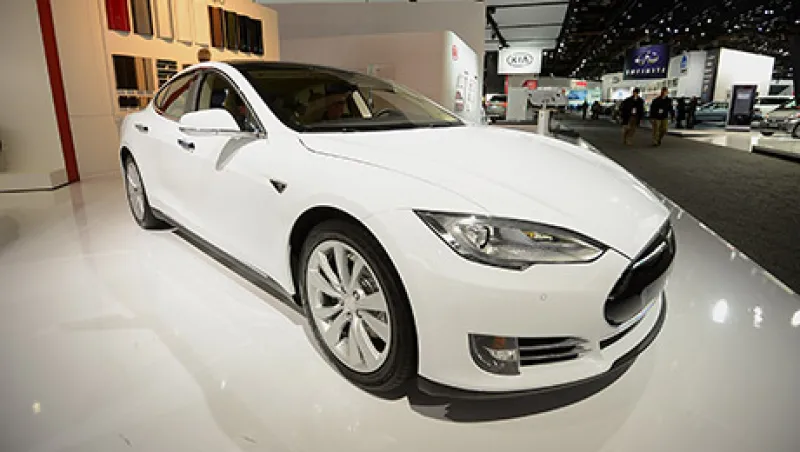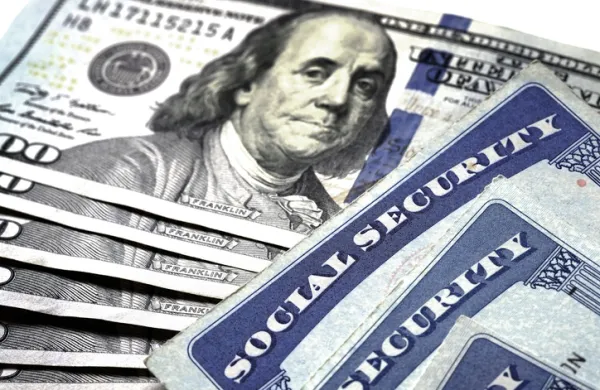Svelte and shiny, the Tesla Model S is already an icon of the tech lifestyle. When a new, hypermodern segment of San Francisco’s Bay Bridge opened last fall, a fleet of the electric luxury sedans was the first to roll across, glinting as prettily as the white struts above and the gray waves below. Driving a Tesla across the Bay Bridge’s new eastern span was a weekend activity of choice for the city’s tech elite — so it somehow doesn’t feel surprising to say that you can’t buy a Tesla in New Jersey. But this is not so much a sign of that state’s cultural distance from Silicon Valley as it is a sign of Tesla’s disruptive potential. It’s not that New Jersey isn’t cool enough for Tesla. It’s that the sale of the cars there has been banned, in a last, likely wasted, effort expended by conventional automotive dealers threatened by its business model.
In short, Tesla sells directly to its customers. In New Jersey the law requires that auto manufacturers sell through dealers. That means customers go to a lot, meet with a salesperson and get pressured into purchasing a vehicle for which they will almost immediately feel a great deal of buyer’s remorse. Same old, same old. By contrast, there are no independent Tesla dealerships. The company operates not lots but showrooms, often located in malls. These sleek retail spaces — with two or three cars, including the Model S, dramatically parked under spotlights in a single aisle — are more like Apple stores (as are their distinctly nonpushy employees) and like Apple’s interactive display spaces in which customers can ask questions about products and see them in the flesh (or steel). Then they are welcome to order online, at home — once they’ve fully considered a purchase; they can also schedule a test drive at another facility.
What seems a superior way of selling cars also demonstrates the inefficiency, added expense and decided unpleasantness of the old way. Wired’s opinion on the New Jersey ban is telling: If Tesla’s direct-to-buyer approach is forbidden, then “buying a car will always suck.”
Recent history is rife with clashes between technology and older, more conventional businesses — and those technologies ultimately winning, often after struggles with politicians swayed by powerful lobbies from various industries. Two years ago, San Francisco–based transportation network company Uber found itself beset with lawsuits and bans. Uber rides were forbidden in New York and Los Angeles because the taxi lobby was intent on keeping Uber vehicles off the street. Regulations forbidding the use of electronic devices on the road were leveraged to shut down the service (users summon Uber drivers using a smartphone, to which the drivers must respond in order to schedule a pickup). The same is true of Uber’s major competitor, San Francisco–based Lyft.
But business models can shift almost as quickly as gears on a manual transmission. Indeed, we could say that if there’s no pushback at the state or city level, then a company hasn’t disrupted anything; it may have made something better or different, but it has not forced anything new into being.
In New York City certain taxi companies now work with Uber, a win for the customer and for the driver. (Payment is handled through the cab’s existing credit card terminal, not the company’s app; Uber owns no cars, it should be noted, and contracts with private drivers.) Regulatory dustups and lawsuits haven’t impeded the company’s boom, including a massive $258 million investment from Google Ventures, and an ongoing and kind of concomitant mass consumer indulgence in its black car extravagance. In Los Angeles you can page an UberBlack car that will, at the drop of a hat, take all of its occupants to Las Vegas for a party weekend. In July of last year, UberChopper flew vacationers from Manhattan to East Hampton for $3,000, an “experiment extending our logistics fabric to new modes of transportation,” according to the company. In theory — and given its success overcoming regulatory hurdles — Uber could provide any mode of transportation, to anywhere. Recently, the company changed its tagline from “Everyone’s Private Driver” to “Where Lifestyle Meets Logistics.” According to CEO Travis Kalanick, the company isn’t so much about cars but about weaving a total “logistical fabric” that will offer a rich panoply of as-yet-unspecified services to users.
The lesson here is that we ought to be attuned to the notion that the companies of the future are those that — like Amazon — disrupt multiple industries at once or in quick succession. Uber may expand into courier services, other forms of transportation and delivery. In the more abstract sense, the real winners to watch — the companies that will shape the landscape of American business and tech as such — are the companies that seek to fill customers’ every need, that work themselves into new markets whenever possible. Amazon began as an online bookstore, but no one who has considered its growth and diversification over the past 15 years would now believe that its CEO, Jeff Bezos, ever intended it to be anything less than what tech writer Brad Stone has termed “the everything store.” Bezos & Co. took on bookselling, and then e-commerce generally, and then hamstringed the poor U.S. Postal Service (one of the first causalities of the Internet Age, already hobbled by the death of snail mail) as more and more commercial freight went to Federal Express because of Amazon’s massive market rapaciousness. Now all freight and delivery companies stand menaced by Amazon, whether or not its experiments with drone-delivered packages lead anywhere.
Amazon Publishing puts out 14 different imprints and will soon produce more content than any other publisher in the world. Make and sell the content, sell the devices — Kindles and other e-readers — through which the content is accessed. Google — perhaps the most useful and most used tool on the Internet — now wants to become an Internet provider with its development of Google Fiber. The Internet search pioneer is seeking total control not just of a market but of an industry, from top to bottom, and the strongest possible goad to its competitors to evolve — to abandon their reactionary tactics and their regressive attempts to hide behind political privilege — or die. As of the writing of this column, Tesla had already appealed the New Jersey decision. Its appeal will be looked back upon as symbolic; it is unlikely that the courts — as opposed to the interminable march of market forces — will decide the ultimate fate of New Jersey car dealerships or similarly vintage business models everywhere.






